- Home
- William Gibson
All Tomorrow's Parties bt-3 Page 19
All Tomorrow's Parties bt-3 Read online
Page 19
He'd been back in a bayou once, in Louisiana, and something about the way it looked in here reminded him of that: there was stuff hanging everywhere, tubing and cables and things whose function he couldn't identify, and it was like Spanish moss in a way, everything softened at the outline. And the light now was dim and sort of underwater-looking, just these banks of scavenged fluorescents slung every twenty feet or so, some of them dead and others flickering.
He walked around a puddle where a vendor had dumped about ten pounds of dirty shaved ice.
Up ahead, he saw the guy with the black scarf turn into a café, one of these tiny little places you got in here, maybe two small tables and a counter that sat four or five. Big blonde boy looked like a weight lifter was coming out as the scarf went in, and the weight lifter made just that little bit of eye contact with Rydell that told him.
They were doing him: the trade-off. He was being tailed, and by at least three people.
A weight lifter started in the direction of Rydell's bed-and-breakfast, Treasure Island, Oakland. Back of his neck as wide as Rydell's thigh. As Rydell passed the café, he looked in and saw the scarf ordering a coffee. Just as normal as pie. So he didn't look behind him, because he knew that if he did that, they'd know. They would. Just like he'd known, when the weight lifter blew it by looking him in the eye.
The belt he'd slung the duffel from was cutting into his shoulder, through his nylon jacket, and he thought about Laney and Klaus and the Rooster, about how they all obviously thought the projector was really important, or valuable. Was that what he was being followed for, or was it about this mystery man of Laney's, his man who wasn't there? Otherwise, he didn't think he had any serious long-term enemies up here, though it was hard to be sure, and he didn't think these guys were ordinary jackers, because it looked to him like they really knew what they were doing.
He reached into the jacket pocket and felt the knife. It was there, and he was glad he had it, though the thought of actually cutting somebody with it bothered him. The thing about knives was that the people who thought they wanted to use them on other people usually had no idea how much mess it made. It wasn't like in the movies; cut people bled like stuck pigs. He'd had to deal with a few cut people around the Sunset Lucky Dragon. And it could get tricky because who knew who was seropositive? He and Durius had these goggles they were supposed to put on, to keep people's blood from getting in their eyes, but usually it just happened all at once and they didn't remember the goggles until it was likely too late anyway.
But the main thing about knives, even ones that cut steel-belt radials like ripe banana, was that they weren't much good in a gunfight.
Someone had slung up an old anti-shoplifting mirror above a closed stall, and as he approached this he tried to see who might be following him, but there was enough foot traffic in here that he only got a generalized sense of people moving.
But what really bothered him now was that he was just doing what they'd probably expect him to: heading back to wherever he was going to spend the night (assuming they didn't already know where that was). And once he got there, what then? He'd be trapped, up in his room, no exit but that ladder, and they'd have him. He guessed he could just keep walking, but he didn't see what that would get him either.
What he needed, he thought, was something he could do that they weren't expecting. Something that put the shoe on the other foot, or anyway he should lose them, whoever they were. Then maybe he could raise Laney and get Laney's take on who they might be.
He'd had an instructor in Knoxville who'd liked to talk about lateral thinking. Which in a way wasn't that far off what Durius meant when he talked about serious users getting lateral, out on the sidewalk outside Lucky Dragon. Just losing it. What it took, sometimes, was just your basic jack move, something nobody, maybe even you, was expecting.
To his right now, he saw he was passing a stretch of wall that was actually canvas, like a sail or an old tent, stretched tight over lumber and maybe half an inch thick with however many coats of paint it had had since it was put up here. Some kind of mural, but he wasn't noticing that.
The switchblade sounded so loud, opening it, that he was sure they'd have heard it, so he just moved, sweeping the ceramic blade down, then sideways, to cut himself a backward 'L. Through which he ducked and stepped, as if in a dream, the paint on the canvas crackling as he did so. Into warmth and a different light and these completely unexpected people seated around a table, cards in their hands, mother-of-pearl chips piled on the table in front of them. And one of them, a woman, the nipples of her bare breasts transfixed with surgical steel, the stub of a small cigar wedged into the corner of her mouth, met Rydell's eye and said: 'I'll see you one and raise you one.
'Never mind me, Rydell heard himself say, as he saw a man with a tattooed scalp, still holding his hand of cards, raise his other hand, with a gun in it, from beneath the table. And simultaneously he realized that he still had the black knife, open, in his hand. He felt a weird wash of cold down his spine as his feet just kept moving, past the table and the man and the deep and somehow limitlessly large black hole in the winking ring of stainless steel that was the pistol's muzzle.
Through a thick brown velour curtain that smelled of ancient movie houses and he was still moving, apparently intact. Feeling his hand thumb the button, closing and cocking the blade against his hip as he went, something he wouldn't have thought of doing otherwise. Pocketing the knife. In front of him a ladder rough-sawn from two-by-fours. Straight to it and just climbing, as fast as he could.
Took him up through a square hole in a splintered timber deck, narrow walkway between walls cut from peeling billboards, a woman's huge stained paper eye faded there as if staring into infinite distance.
Stop. Breathe. Heart pounding. Listen.
Laughter. The card players?
He started along the walkway, feeling a rising sense of triumph: he'd done it. Lost 'em. Wherever he was, up here, he'd be able to find his way back out, and down, and then he'd see how it went. But he had the projector and he'd lost them and he hadn't gotten his ass shot for interrupting somebody's poker game. 'Lateral thinking, he said, congratulating himself, as he reached the end of the walkway and rounded a corner.
He felt the rib crack as the weight lifter hit him and knew that the black glove, like the ones he'd trained with in Nashville, was weighted with lead.
It sent him back against the opposite wall, his head slamming against that, and his whole left side refused to move when he tried.
The weight lifter pulled the black glove back for a roundhouse into Rydell's face. And smiled.
Rydell tried to shake his head.
Faintest look of surprise, maybe confusion, in the other's eyes, his face. Then nothing. The smile gone slack.
The weight lifter went suddenly and very heavily to his knees, swayed, and crashed sideways to the gray timber deck. Revealing behind him this slender, gray-haired man in a long smooth coat the color of old moss, who was replacing something there, the lapel held open with his other hand. Eyes regarding Rydell through gold-rimmed glasses. A deep crease up each cheek, like he smiled a lot. The man adjusted his beautiful coat and lowered his hands.
'Are you injured?
Rydell drew a ragged breath, wincing as the rib seemed to grate. 'Rib, he managed.
'Are you armed?
Rydell looked into the clear, bright, unmoving eyes. 'Knife in my right pocket, he said.
'Please keep it there, the man said. 'Are you able to walk?
'Sure, Rydell said, taking a step and almost falling on the weight lifter.
'Come with me, please, the man said and turned, and Rydell followed.
46. PINE BOX
CREEDMORE was into the climax of his number before Chevette spotted God's Little Toy cruising past overhead. The bar, like a lot of the spaces here on the original deck, didn't have a ceiling of its own, just the bottoms of whatever floor areas had been erected above it, with the result that what passed for
a ceiling was uneven and irregular. The management had at some point sprayed all that black, and Chevette might not have noticed the floating camera platform if its Mylar balloon hadn't caught and reflected the stage lights. It was definitely under human control and looked like it might be jockeying to get a close-up of Creedmore. Then Chevette spotted two more of the silver balloons, these parked up in a sort of hollow created by a discontinuity in the floors above.
That meant, she thought, that Tessa had gotten someone to drive her back to the foot of Folsom. Then either she'd driven back or gotten a lift. (She was pretty sure Tessa wouldn't have walked it, not with the balloons anyway.) Chevette hoped the latter, because she didn't want to have to try to find a space to park the van a second time. Whatever Tessa was up to here, they were going to need a place to sleep later.
Creedmore's song ended with a sort of yodeling cry of brainless defiance, which was echoed back, amplified into a terrifying roar, by the meshback crowd. Chevette was amazed by the enthusiasm, not so much that it was for Creedmore as it was for this kind of music. Music was strange that way though; there were people into any damned thing, it seemed like, and if you got enough of them together in one bar, she guessed, you could have a pretty good time.
She was still working her way through the crowd, warding off the odd grope, looking for Tessa, and keeping an eye out for Carson, when Creedmore's friend Maryalice found her. Maryalice had undone a couple of extra increments of bustier, it looked like, and was presenting as very ample indeed. She looked really happy, or anyway as happy as you can look when you're really drunk, which she definitely and obviously was.
'Honey! she cried, grabbing Chevette by the shoulders. 'Where have you been? We got all kinds of free drinks for our industry guests!
Maryalice clearly didn't remember Chevette having told her that she and Tessa weren't A&R people, but Chevette guessed that there was quite a lot, usually, that Maryalice didn't remember.
'That's great, Chevette said. 'Have you seen Tessa? My friend I was here with? She's Australian-
'Up in the light booth with Saint Vitus, honey. She's getting Buell's whole performance on those little balloon things! Maryalice beamed. Gave Chevette a big, lipstick-greasy kiss on the cheek and instantly forgot her, face going blank as she turned in what Chevette supposed would be the direction of the bar.
But the light booth, now, she could see that: a sort of oversized matte-black crate tacked up against the angle of the wall, opposite the stage, with a warped plastic window running its length, through which she could see, quite plainly, the faces of Tessa and some bald-headed boy with mean-looking slitty black glasses. Just their two heads in there, like puppet heads. Reached, she saw, by an aluminum stepladder fastened to the wall with lengths of rusting pipe strap.
Tessa had her own special glasses on, and Chevette knew she'd be seeing the output from God's Little Toy, adjusting angle and focus with her black glove. Creedmore had launched into another song, its tempo faster, and people were tapping their feet and bobbing up and down in time.
Couple of men in those meshback caps, drinking beer out of cans, by that ladder, but she ducked under their arms and climbed up, ignoring the one who laughed and swatted her butt with the flat of his hand.
Up through the square hole, her nose level with dusty, beer-soaked brown carpet. 'Tessa. Hey.
'Chevette? Tessa didn't turn, lost in the view in her glasses. 'Where'd you go?
'I saw Carson, Chevette said, climbing up through the hole. 'I took off.
'This is amazing footage, Tessa said. 'The faces on these people. Like Robert Frank. I'm going to treat it as mono and grain it down-
'Tessa, Chevette said, 'I think we should get out of here.
'Who the fuck are you? said the baldie, turning. He was wearing a sleeveless tube shirt and his upper arms were no thicker than Chevette's wrists, his bare shoulders looking fragile as the bones of a bird.
'This is Saint Vitus, Tessa said, as if absently bidding to forestall hostilities, attention elsewhere. 'He does the lights in here, but he's the sound man at two other clubs on the bridge, Cognitive Dissidents and something else Tessa's hand dancing with itself in the black control glove.
Chevette knew Cog Diss from before. 'That's a dancer bar, Tessa, she said.
'We're going over there after this, Tessa said. 'He says it'll just be getting going, and it'll be a lot more interesting than this.
'Anything would, Saint Vitus said with infinite weariness.
'Blue Ahmed cut a single there, Tessa said, 'called 'My War Is My War.
'It sucked, Chevette said.
'You're thinking of the Chrome Koran cover, said Saint Vitus, his voice dripping with contempt. 'You've never heard Ahmed's version.
'How the fuck would you know? Chevette demanded.
'Because it was never released, Saint Vitus declared smugly.
'Well, maybe it fucking escaped, Chevette said, feeling like she wanted to deck this diz-monkey, and thinking it might not be that hard to do, although you never knew what would happen if somebody tightened on dancer got really upset. All those stories about twelve-year-olds getting so dizzed they'd grab the bumper of a cop car and flip the whole thing, though these usually involved the kids' muscles popping out through their skins, which she sincerely hoped was impossible. Had to be: what Carson called urban legends.
Creedmore's song ended with a steely clash of guitar that drew Chevette's attention to the stage. Creedmore looked completely tightened now, staring triumphantly out as though across a sea of faces in some vast stadium.
The big guitarist unslung his red guitar and handed it to a boy with sideburns and a black leather vest, who passed him a black guitar with a skinnier body.
'This here's called 'Pine Box, ' Creedmore said, as the big guitarist began to play. Chevette couldn't catch the words as Creedmore began to sing, except that it sounded old and doleful and was about winding up in a pine box, by which she took him to mean a coffin, like what they used to bury people in, but she guessed it could just as easily apply to this sound booth she was stuck in here, with Tessa and this asshole. She looked around and saw an old chrome stool with its pad of upholstery split and taped over, so she planted herself on that and decided she was just going to keep quiet until Tessa had taped as much as she wanted of Creedmore's act. Then she'd see about getting them out of here.
47. SAI SHING ROAD
LIBIA and Paco have shown Laney to a barbershop in Sai Shing Road. He has arrived here, of course, with no knowledge of the route involved; Sai Shing is in the Walled City, and he is a visitor, not a resident. The Walled City's whereabouts, the conceptual mechanisms by which its citizens have opted to secede from the human datascape at large are the place's central and most closely held secret. The Walled City is a universe unto itself, a subversive rumor, the stuff of legend.
Laney has been here before, although not to this specific construct, this barbershop, and he dislikes the place. Something in the underlying code of the Walled City's creation induces a metaphysical vertigo, and the visual representation is tediously aggressive, as though one were caught in some art school video production with infinitely high production values. Nothing is ever straightforward, in the Walled City; nothing is ever presented as written, but filtered instead through half a dozen species of carefully cultivated bit rot, as though the inhabitants were determined to express their massive attitude right down into the least fractal texture of the place. Where a clever website might hint at dirt, at wear, the Walled City luxuriates in apparent frank decay, in texture maps that constantly unravel, revealing of other textures, equally moth-eaten.
This barbershop, for instance, is shingled from overlapping tiles of texture, so that they don't quite match up at their edges, deliberately spoiling any illusion of surface or place. And everything here is done in a palette of rain-wet Chinatown neon: pink, blue, yellow, pale green, and the authoritatively faded red.
Libia and Paco depart immediately, leaving Laney to wonder
how he, were he to bother, might choose to present himself in this environment: perhaps as a large cardboard carton?
Klaus and the Rooster put an end to this surmise, however, abruptly appearing in two of the shop's four barber chairs. They look as he remembers them, except that Klaus now wears a black leather version of his snap-brim fedora, its brim turned up all around, and the Rooster somehow looks even more like one of Francis Bacon's screaming popes.
'Whole new game here, Laney opens.
'How so? Klaus appears to suck his teeth.
'Harwood's had 5-SB. And you know it too, because those chilango kids of yours just told me. How long have you known?
'We operate on a need-to-know basis, the Rooster begins, in full geek-pontificator mode, but Klaus cuts him off: 'About ten minutes longer than you have. We're anxious to know what you make of it.
'It changes everything, Laney says. 'The way he's been successful all these years: the public relations empire, advertising, the rumors that he was pivotal in getting President Millbank elected, that he was behind the partition of Italy..
'I thought that was his girlfriend, the Rooster says sullenly, 'that Padanian princess-
'You mean he's only picking winners? Klaus demands. 'You're suggesting that he's in nodal mode and simply gets behind emerging change? If that's all it is, my friend, why aren't you one of the richest men in the world?
'It doesn't work that way, Laney protests. 5-SB allows the apprehension of nodal points, discontinuities in the texture of information. They indicate emerging change, but not what that change will be.
'True, agrees Klaus and purses his lips.
'What I want to know, Laney says, 'what I need to know, and right now, is what Harwood is up to. He's sitting at the cusp of some unprecedented potential for change. He appears to be instrumental in it. Rei Toei is in it too, and this freelance people-eraser of Harwood's, and an out-of-work rent-a-cop… These people are about to change human history in some entirely new way. There hasn't been a configuration like this since 1911-

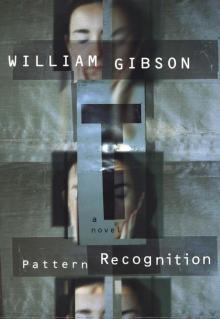 Pattern Recognition
Pattern Recognition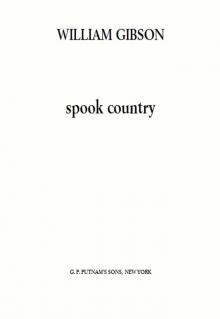 Spook Country
Spook Country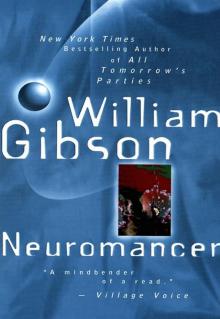 Neuromancer
Neuromancer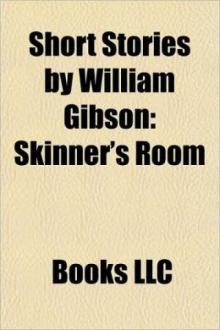 Skinner's Room
Skinner's Room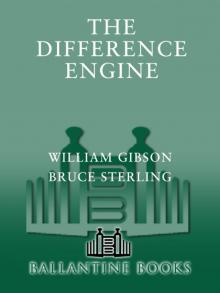 The Difference Engine
The Difference Engine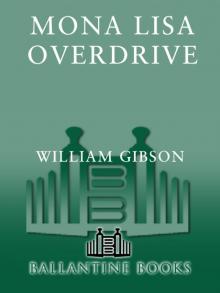 Mona Lisa Overdrive
Mona Lisa Overdrive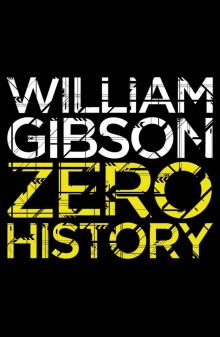 Zero History
Zero History The Peripheral
The Peripheral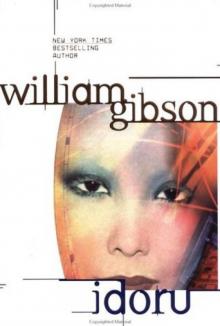 Idoru
Idoru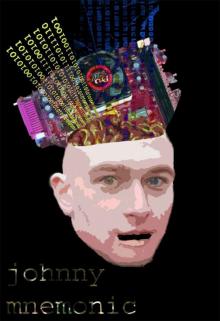 Johnny Mnemonic
Johnny Mnemonic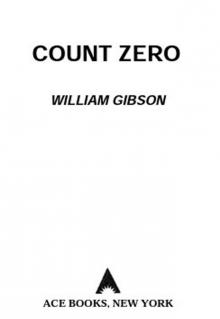 Count Zero
Count Zero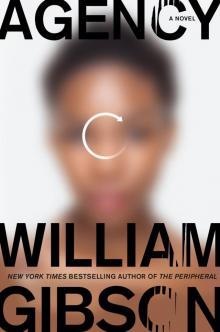 Agency
Agency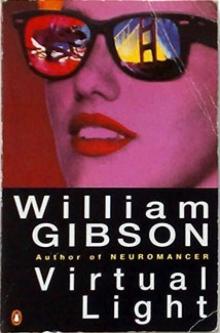 Virtual Light
Virtual Light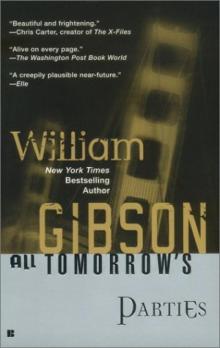 All Tomorrow's Parties
All Tomorrow's Parties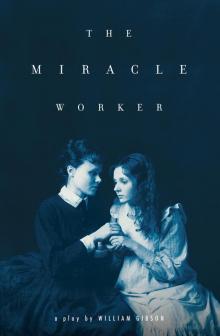 The Miracle Worker
The Miracle Worker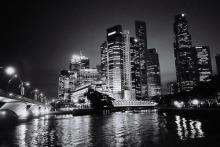 Disneyland with the Death Penalty
Disneyland with the Death Penalty Idoru tb-2
Idoru tb-2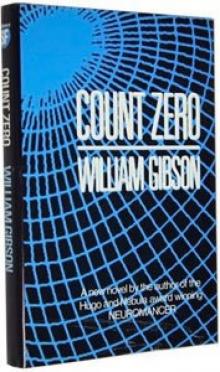 Count Zero s-2
Count Zero s-2 The Gernsback Continuum
The Gernsback Continuum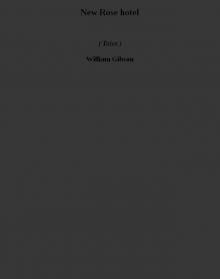 New Rose hotel (tales)
New Rose hotel (tales)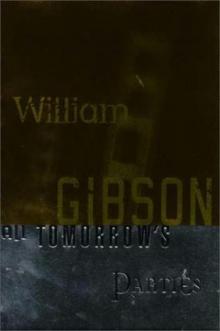 All Tomorrow's Parties bt-3
All Tomorrow's Parties bt-3 Hinterlands
Hinterlands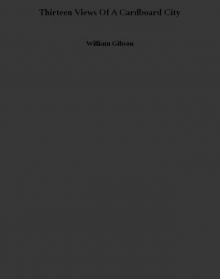 Thirteen Views Of A Cardboard City
Thirteen Views Of A Cardboard City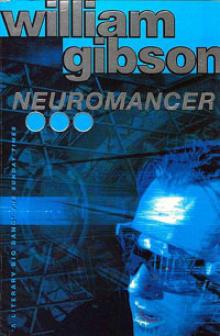 Neuromancer ts-1
Neuromancer ts-1 Virtual light b-1
Virtual light b-1